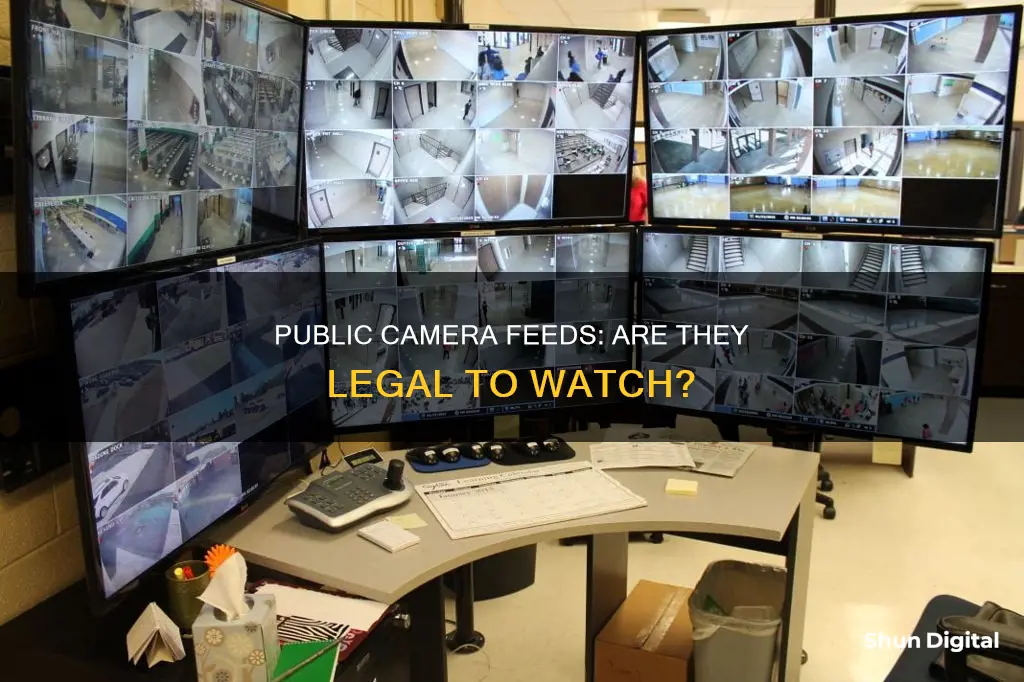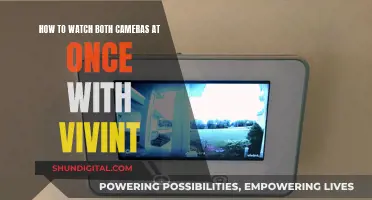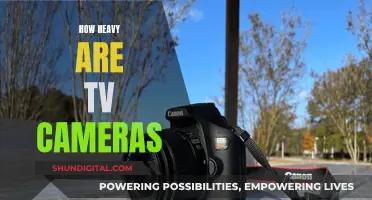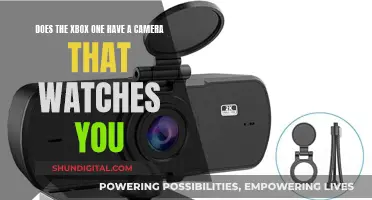
The legality of watching public camera feeds depends on several factors, including the specific laws and regulations in your jurisdiction, the location of the cameras, and the expectations of privacy. In most places, it is generally legal to install security cameras and record video in public spaces, but there are also laws in place to protect individuals' privacy. For example, it is typically illegal to record people in private places such as bathrooms or bedrooms without their consent. Additionally, some states have stricter security camera laws than others, with specific regulations regarding hidden cameras and audio recording. When watching public camera feeds, it is important to be cautious and respectful of others' privacy rights to avoid legal issues.
| Characteristics | Values |
|---|---|
| Legality of watching public camera feeds | Generally legal, except in certain states or counties with specific laws |
| Privacy laws | Vary by state and county; some states require consent for recording in private spaces |
| Consent laws | One-party consent laws allow recording with the permission of at least one party; some states require all-party consent |
| Hidden cameras | Generally allowed in public spaces; may be prohibited in private spaces without consent |
| Publicly posting footage | Legal if no personally identifiable information is shared or consent is obtained; blurring faces and details is recommended |
What You'll Learn

Legality of security cameras in the US
The use of security cameras is legal in the US, but there are laws surrounding privacy and consent that must be considered. While there is no specific federal law governing the use of security cameras, there are national consent and privacy laws that apply to video surveillance, as well as different regulations for recording audio and video footage.
Expectation of Privacy Laws
In the US, it is usually legal to install a residential security camera and record video. However, US citizens are guaranteed a reasonable expectation of privacy, which extends to video recording. This means that you cannot record people in private places, such as bathrooms, bedrooms, changing rooms, locker rooms, etc. The same rule applies to audio recording, where it is illegal to record private conversations without the consent of at least one party (one-party consent law).
State and Local Laws
While the federal government does not have specific laws on the use of security cameras, some states and counties have their own regulations. For example, Georgia permits the use of video surveillance cameras in public and private settings as long as the cameras are in plain sight. On the other hand, states like California, Delaware, and Florida require all parties to give consent for audio recording.
Businesses and Surveillance
Businesses need to protect their investments and personnel, and security cameras can help achieve this. However, businesses are not generally afforded the same legal leeway as homeowners as they consist of public or shared spaces, where there are different reasonable expectations of privacy. Businesses usually need to make employees and customers aware of their security policy and the use of recording devices, and post notices to inform patrons that the premises are under video recording surveillance.
A Guide to Operating Spy Watch Cameras
You may want to see also

Privacy laws and consent
Expectation of Privacy Laws
People have a legal right to a "reasonable expectation of privacy." This means that it is generally legal to record video in public spaces, such as on the street, in a bar, or even in your front yard, as these are areas where privacy expectations are lower. However, it is important to respect people's privacy in areas typically considered private, such as bathrooms, bedrooms, and changing rooms. Recording video in these private spaces without consent is illegal and violates people's reasonable expectation of privacy.
Consent Laws
Consent laws govern the recording of audio and visual content. At the federal level, the "one-party consent" law allows recording a conversation, either in person or over the phone, if at least one person involved consents. This means that you can record a conversation you are a part of. However, some states, like California, Delaware, Florida, Illinois, and Maryland, have "all-party consent" laws, requiring the consent of all parties involved in the conversation.
State and Local Regulations
It is important to note that laws around security cameras vary across states and counties. While some states may permit hidden cameras in non-private settings, others require consent for any form of video or audio recording in private spaces. Therefore, it is crucial to check the specific laws and regulations in your state and local area before installing and using security cameras.
Practical Considerations
While the law allows for recording in public spaces, it is important to respect the privacy of others. Avoid pointing cameras directly at a neighbor's home, especially if it can capture private areas. Additionally, while not legally required, posting signs or stickers indicating that a property is under surveillance can help avoid potential consent issues and deter intruders.
In conclusion, when it comes to privacy laws and consent regarding public camera feeds, always respect people's reasonable expectation of privacy, be aware of and comply with consent laws, and stay informed about specific state and local regulations.
The Eye of Corporate: Watchful Cameras at Work
You may want to see also

One-party consent laws
The one-party consent law does not cover video surveillance, but it does apply to audio recordings made by security cameras. This is an important distinction, as the laws around video and audio recording are different.
In the United States, there is no specific federal law that regulates how to use a home security camera, but there are national consent and privacy laws that apply to video surveillance. There are also different regulations for recording audio and video footage. Generally, it is legal to record video in public spaces, but it is illegal to record people in private places, such as bathrooms, bedrooms, and changing rooms.
The one-party consent law means that as long as one person in the conversation has given consent, it is legal to record audio. However, some states have stricter laws and require all parties to consent to the recording of audio. These states include California, Delaware, Florida, Illinois, and Maryland, among others.
It is important to note that the laws around security cameras and recording conversations can vary by state and county, so it is essential to check the specific regulations in your area.
Apple Watch Series 3: Camera-Equipped or Not?
You may want to see also

Legality of posting security footage online
The legality of posting security footage online depends on several factors, including local regulations and privacy laws. While there is no specific federal law governing the use of security cameras, national consent and privacy laws must be considered, in addition to varying state, county, and city regulations.
Consent Laws
In the US, it is generally legal to install a residential security camera and record video. However, US citizens are guaranteed a reasonable expectation of privacy, which extends to video recording. This means that you cannot record people in typically private places, such as bathrooms, bedrooms, and changing rooms.
Consent laws dictate that it is legal to record a conversation, either in person or over the phone, if you have at least one person's consent. This is called the "one-party consent" law. Some states, however, have an "all-party consent" law, which requires the consent of all parties in the conversation for it to be recorded. These states include California, Delaware, Florida, Illinois, and Maryland, among others.
Privacy Laws
Publicly posting footage without permission that reveals sensitive details about identifiable persons is generally illegal. Political figures and celebrities have additional protections limiting the publication of videos tracking their activities.
To avoid breaking privacy laws, users can blur or edit out faces and other identifying details from the video before posting it online. This preserves anonymity while still allowing the sharing of relevant visual information.
Legitimate Reasons for Posting Security Footage
There are some legitimate reasons for publicly sharing security camera footage, such as public safety concerns or criminal activities investigations. In these cases, it is still vital to anonymize identities and details unrelated to the main incident before sharing.
Best Practices for Posting Security Footage
When posting security camera footage online, it is recommended to follow these best practices to avoid legal risks:
- Only share short, relevant clips instead of long, unedited streams.
- Blur or pixelate faces and license plates.
- Add captions or descriptions that provide context without making accusations.
- Work with local authorities and inform filmed individuals beforehand, if possible.
- Avoid profanity, calls to harass suspects, or vigilante behavior.
- Take down the video if requested by authorities or filmed parties.
- Store footage securely offline to prevent leaks.
Watching Pi Camera Footage: A Guide for Your Pi Desktop
You may want to see also

Privacy laws and public cameras
Privacy laws vary across different countries, states, counties, and cities. However, there are some common themes regarding the use of public cameras.
In general, it is legal to record video in public spaces, and this includes the use of doorbell cameras, security cameras, and phone cameras. However, it is important to respect individuals' reasonable expectation of privacy. This means avoiding recording in areas such as bathrooms, bedrooms, changing rooms, and locker rooms.
For outdoor cameras, it is generally acceptable to have them stationed around your property, even if they have indirect views of your neighbors' yards. However, if an outdoor camera is pointed directly at a neighbor's window, this would be a violation of their privacy.
The placement of indoor cameras is more restricted. Cameras should be avoided in areas where individuals have a reasonable expectation of privacy, such as bedrooms, guest rooms, and bathrooms. In rented properties, hotel rooms, and locker rooms, security cameras are generally not allowed.
In the United States, there is a "one-party consent" law regarding audio recordings. This means that recording a conversation, either in person or over the phone, is legal if one party consents to it. However, some states have an "all-party consent" law, requiring everyone in the conversation to consent to the recording.
In Australia, organizations or agencies using surveillance devices, such as security cameras or CCTV, must comply with certain laws. If the Privacy Act 1988 applies to the organization, they must follow the Australian Privacy Principles when collecting personal information through surveillance devices. This includes informing individuals that their image may be captured and ensuring the security and proper disposal of recorded personal information.
It is important to note that the legality of public camera usage can be complex and depend on specific local laws and circumstances. Respecting the privacy of others is crucial, and individuals should be cautious about recording in areas where there is an expectation of privacy.
Galaxy Watch Camera Features: What You Need to Know
You may want to see also
Frequently asked questions
In most cases, it is legal to watch a public camera feed as long as it does not violate privacy laws or other regulations. However, it is important to be cautious and responsible when doing so.
It is generally legal to record video in public. However, it is important to respect the expectation of privacy laws and obtain consent for audio recordings.
While it is not illegal to watch a public camera feed, it is important to consider the ethical implications. Respecting the privacy of individuals and avoiding the non-consensual distribution of personal information are key ethical considerations.







